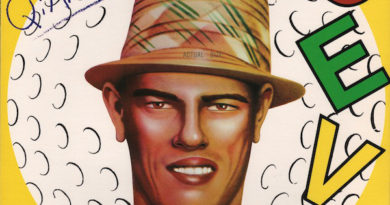Mark Oliver Everett Vents Tragedy and Despair
30 years ago, The Eels release Electro-Shock Blues

Mark Oliver Everett, the artist formerly known simply as E, was never the easiest auteur to appreciate or understand. After rebranding himself following E’s initial offerings, Everett successfully reinvented himself in the guise of The Eels and embarked on a series of albums that drew attention through distinctive sounds that veered from atmosphere to intrigue.
Electro-Shock Blues, the second album released under the Eels ubiquitous banner, was especially significant because it was borne from tragic circumstance. It’s amazing in fact that E even had the wherewithal to withstand the emotion and stress that accompanied its creation. His sister’s suicide and mother’s bout with terminal cancer, as well as the scars that remained from his discovery of his father’s body after a sudden massive heart attack, also figured in his mindset and lingered large in his memory.
Its telling that the album title refers to the electroconvulsive therapy his sister received while confined to an institution in the final months of her life.
Suffice it to say then that much of the album is extremely unsettling. That’s especially true of the convulsive electronic arrangements that accompany the tellingly titled “Cancer for the Cure” and “Hospital Food.” The names of the songs offer more than a hint of those darker designs — “Going to Your Funeral,” “My Descent into Madness,” “The Medication is Wearing Off,” et. al. — but most are simply languid and uneasy by design, and some, like “3 Speed,” “Climbing to the Moon,” “The Medicine Is Wearing Off,” “P.S. You Rock My World,” and “Last Stop: This Town” in particular are surprisingly sublime. Still, the backstory is bleak and flush with despair as several songs detail Everett’s final days with his stricken family members in stark and sad detail. The anguish is palatable and wholly consuming by its essence.
Nevertheless, the album was well received, with many critics comparing it to the sad scenarios described by John Lennon, Randy Newman, Brian Wilson and others of their ilk.
“In my mind, I’m just trying to reflect life and all its experiences and shades and colors,” Everett told this writer earlier this year. “Some of it is pleasant and some of it is unpleasant. It’s always in the name of trying to get to a more pleasant place. Sometimes it’s based on some sort of autobiographical experience and other times its not. It’s like fiction, or some character I’ve made up. It kind of comes and goes between the two and you don’t always know. I see why someone would assume it’s autobiographical, because I like to tell a story in the first person voice. It might not be me personally.”
In this case, there’s no doubt it is. The reality is relevant in ways both telling and tragic. For all its harsh retrospect and dire description, Electro-Shock Blues remains the Eels’ most personal and poignant effort yet, and the one that’s most revealing by far. Indeed, it’s a fine example of E’s ability to invent a new kind of pop profundity, and, in the process, define himself as well.




